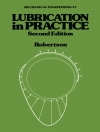This inclusive, cross-cultural study rethinks the nexus between engineering, development, and culture. It offers diverse commentary from a range of disciplinary perspectives on how the philosophies of today’s cultural triumvirate—American, European and Chinese—are shaped and given nuance by the cross-fertilization of engineering and development. Scholars from the humanities and social sciences as well as engineers themselves reflect on key questions that arise in this relational context, such as how international development work affects the professional views, identities, practice and ethics of engineers. The first volume to offer a systematic and collaborative study that cuts across continental boundaries, the book delineates the kinds of skills and competences that tomorrow’s engineering success stories will require, and analyzes fascinating aspects of the interplay between engineering and philosophy, such as how traditionally Chinese ways of thinking can influence modern engineering practice in the world’s most populous country. China’s problematic mix of engineering woes and wonders, from the high-profile crash on its high-profile rail network to its ‘bird’s nest’ Olympic stadium, adds to the urgency for reform, while Europe’s Enlightenment-informed legal frameworks are contrasted with Chinese mechanisms in their governance of the field of nanotechnology, a crucial element of future technical evolution. Fascinating and compelling in equal measure, this volume addresses one of the topics at the leading edge of humanity’s quest to survive, and to thrive.
Table of Content
Part I. Rethinking Philosophy of Engineering and Development.- Introduction; Erich W. Schienke and Brent K. Jesiek.- Chapter 1. Turning Engineering Green: Sustainable Development and Engineering Education; Andrew Jamison.- Chapter 2. From a Micro-Macro Framework to a Micro-Meso-Macro Framework; Bocong Li.- Chapter 3. Traditional Chinese Thinking and Its Influence on Modern Engineering and Social Development; Qian Wang and Qin Zhu.- Chapter 4. Engineering and Development in Modern China: Challenges and Responses; Xiaonan Hong and Li Ma.- Chapter 5. “Ecocity China”: An Ethos under Development; Erich W. Schienke.- Chapter 6. Negotiated Development: Rediscovering a Global Development Ethic; Peter Mc Evoy, Jane Grimson, and William Grimson.- Part II. Rethinking Engineering Education.- Introduction; Andrew Jamison and Yi Shen.- Chapter 7. The Challenge of Educating Engineers for a Close, Crowded and Creative World; Ela Krawczyk and Mike Murphy.- Chapter 8. Educating Chinese Engineers: The Case of Shanghai Jiao Tong University during 1896-1949; Brent K. Jesiek and Yi Shen.- Chapter 9. Academic Drift in European Professional Engineering Education: The End of Alternatives to the University?; Steen Hyldgaard Christensen.- Chapter 10. Governing Engineering; Anders Buch.- Chapter 11. Historical Tensions in Engineering Education: European Perspectives; Andrew Jamison and Matthias Heymann.- Chapter 12. Socio-technical integration in Engineering Education: A Never Ending Story; Steen Hyldgaard Christensen and Erik Ernø Kjølhede.- Chapter 13. Tensions in Developing Engineering Design Competencies; Ulrik Jørgensen.- Chapter 14. The Local Engineer: Normative Holism in Engineering Formation; Gary Lee Downey.- Chapter 15. Eyes Wide Shut? Loyalty and Practical Morality in Engineering Education; Martine Buser and Christian Koch.- Part III. Rethinking Perspectives on Engineering, Nature and Society.- Introduction; Martin Meganck and Yanming An.- Chapter 16. Ex-students engaged in “Engineers without Borders”: What Have They Become?; Christelle Didier.- Chapter 17. Socio-technical Integration: Research Policies in the United States, European Union, and China; Hannot Rodríguez, Hu Mingyan and Erik Fisher.- Chapter 18. Inheritance Ethics in Engineering Development: Comparison Between Shenyang and Ruhr on Industrial Heritage Conservation; Jian Wang and Jia Chen.- Chapter 19. Dam Construction Ethics in China; Zhihui Zhang.- Chapter 20. The Development of Railroads in the United States and China; Nan Wang.- Chapter 21. Engineering Leadership; Mike Murphy and Eugene Coyle.- Chapter 22. Harmonization with Nature: Ancient Chinese Views and Technological Development.- Chapter 23. Lynn White Revisited: Religious and Cultural Backgrounds for Technological Development; Martin Meganck.- Author Biographies.- Index.












